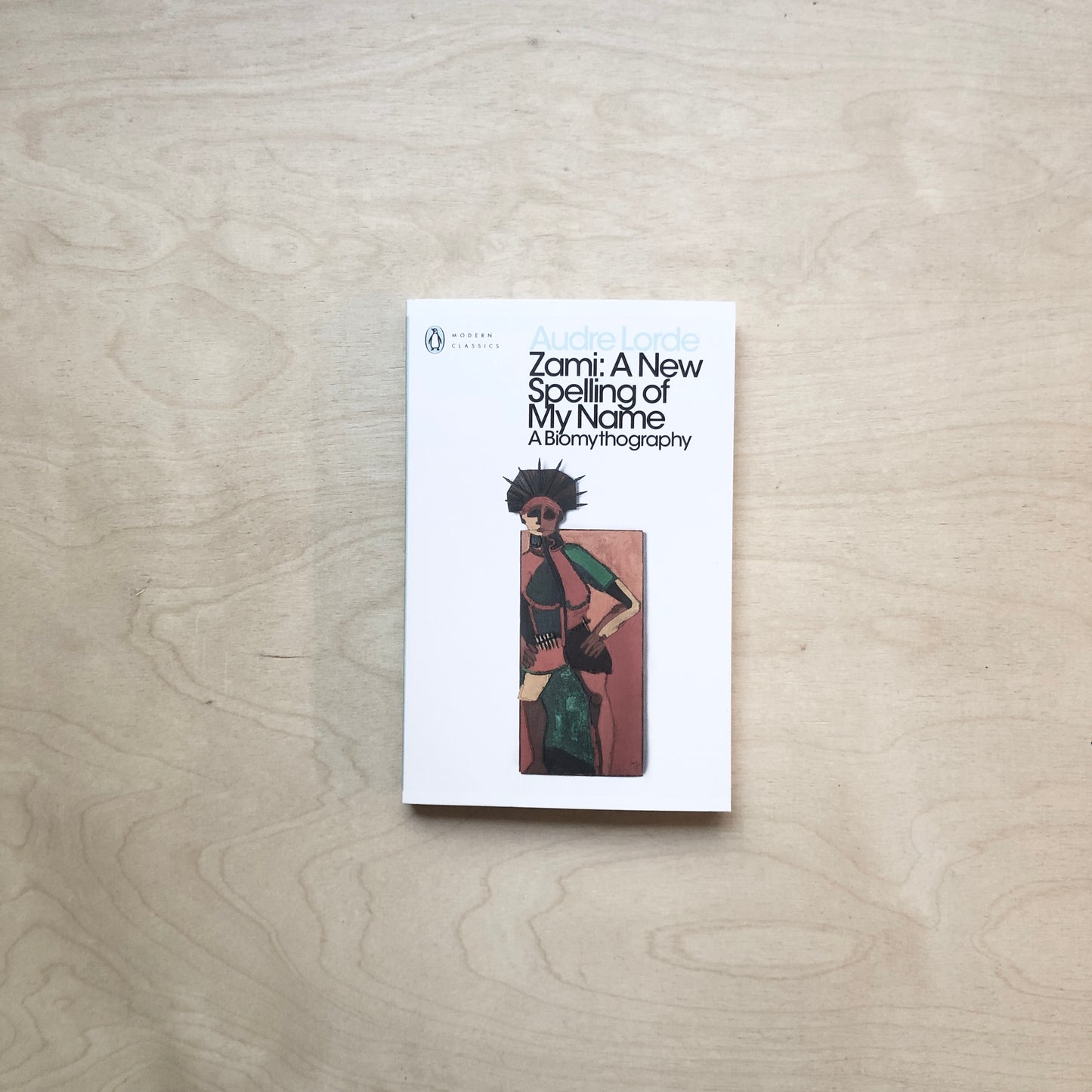Zami: A New Spelling of My Name - A Biomythography
Zami: A New Spelling of My Name - A Biomythography
Audre Lorde
Penguin Books
2018
9780241351086Paperback
20 x 13 x 2.5 cm
320 pages
Regular price
13,00 €
Regular price
Sale price
13,00 €
Unit price
per
Tax included.
Couldn't load pickup availability
"If I didn't define myself for myself, I would be crunched into other people's fantasies for me and eaten alive"
A little black girl opens her eyes in 1930s Harlem, weak and half-blind. On she stumbles - through teenage pain and loneliness, but then to happiness in friendship, work and sex, from Washington Heights to Mexico, always changing, always strong. This is Audre Lorde's story. A rapturous, life-affirming autobiographical novel by the 'Black, lesbian, mother, warrior poet', it changed the literary landscape.
Audre Lorde was a writer, feminist and civil rights activist - or, as she famously put it, 'Black, lesbian, mother, warrior, poet'. Born in New York in 1934, she had her first poem published while she was still in high school. After stints as a factory worker, ghost writer, social worker, X-ray technician, medical clerk, and arts and crafts supervisor, she became a librarian in Manhattan and gradually rose to prominence as a poet, essayist and speaker, anthologised by Langston Hughes, lauded by Adrienne Rich, and befriended by James Baldwin. She was made Poet Laureate of New York State in 1991, when she was awarded the Walt Whitman prize; she was also awarded honorary doctorates from Hunter, Oberlin and Haverford colleges. She died of cancer in 1992, aged 58.
Praise:
"I came across Audre Lorde's Zami, and I cried to think how lucky I was to have found her. She was an inspiration. At last I felt I fitted in." -Jackie Kay
"Excellent and evocative... personal honesty and lack of pretentiousness shine through the writing. Her experiences are painted with exquisite imagery." -The New York Times
"Zami is important because of its descriptions of growing up a black lesbian feminist in the 1950s, with open, unapologetic, vivid descriptions of women's relationships." -Guardian

